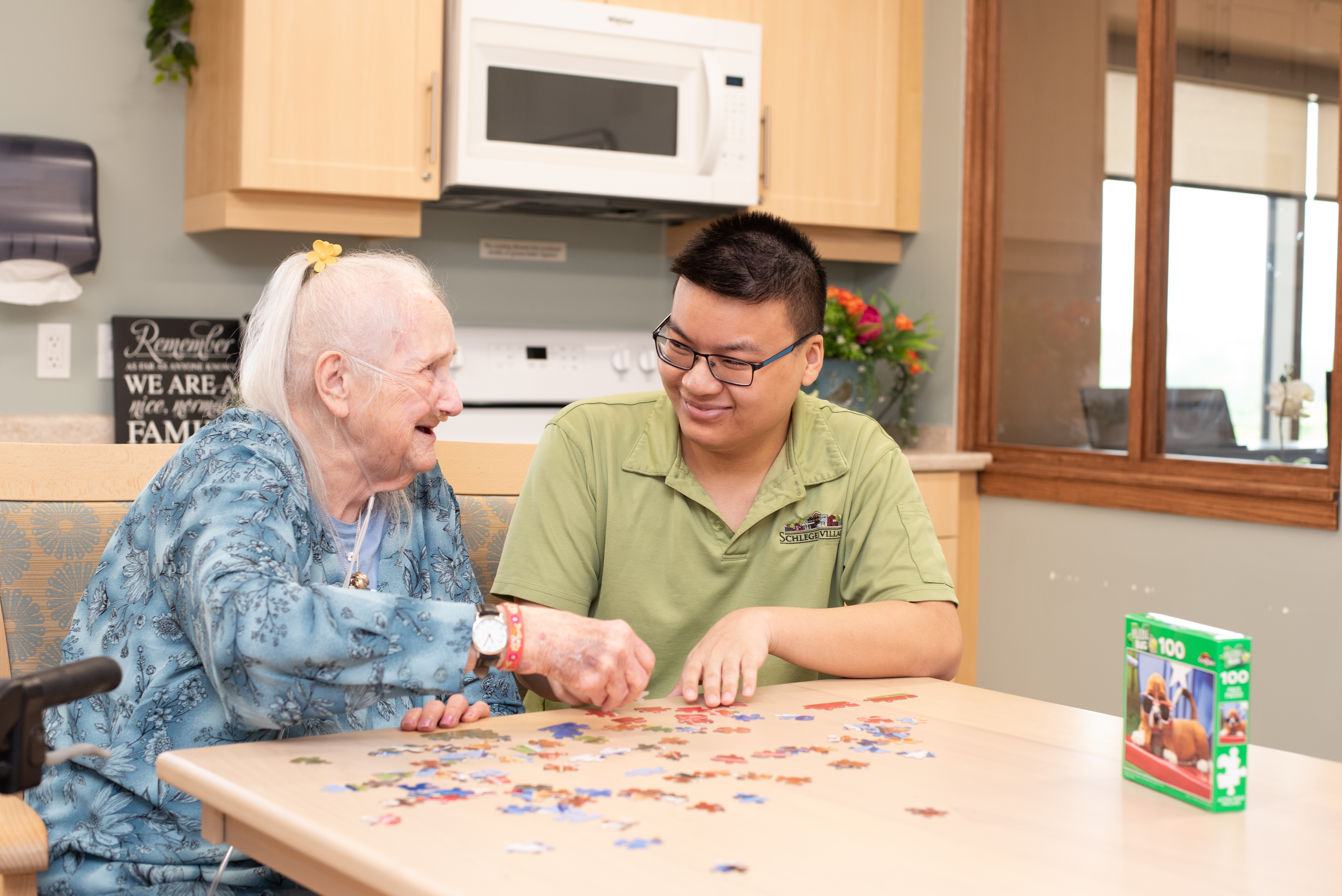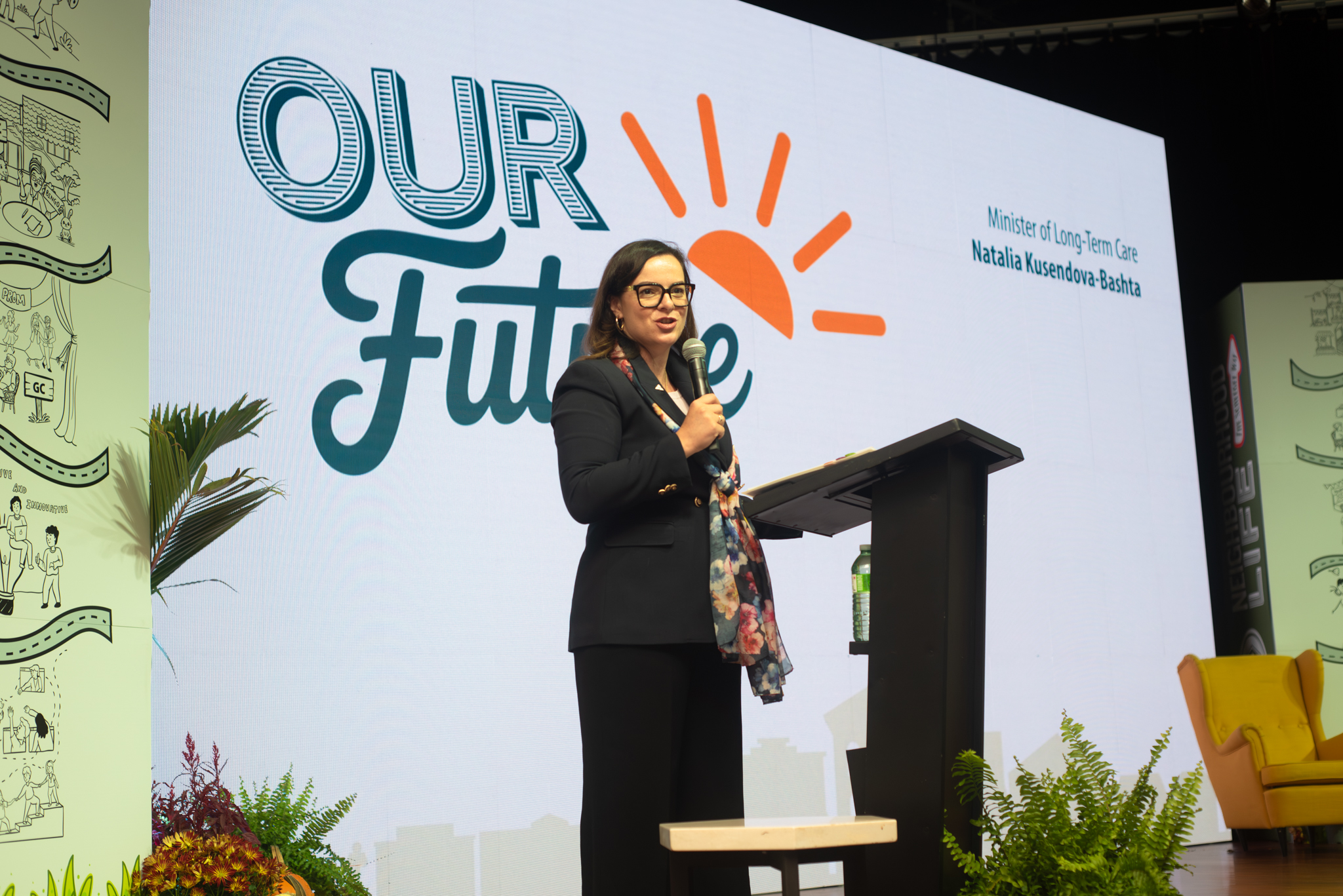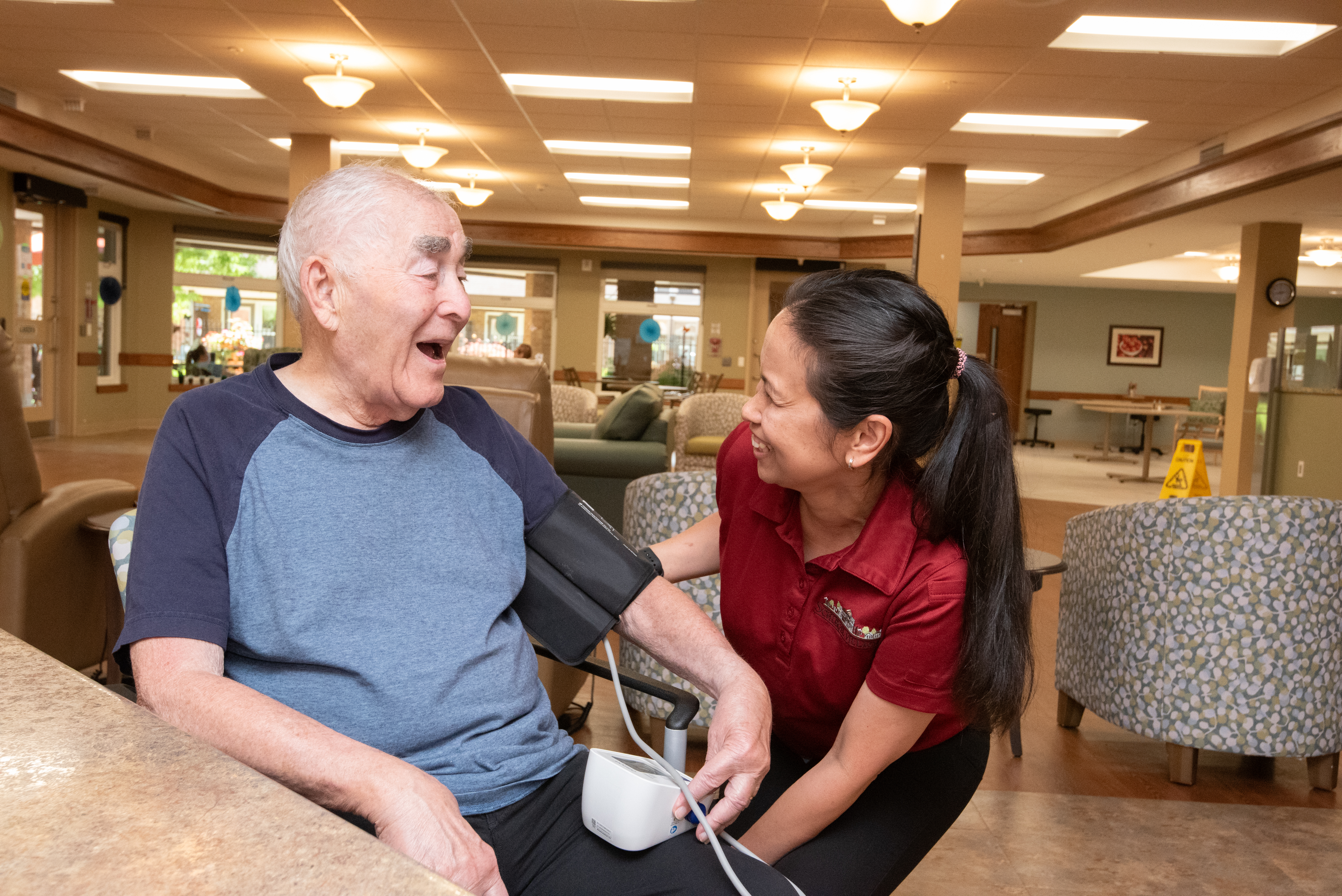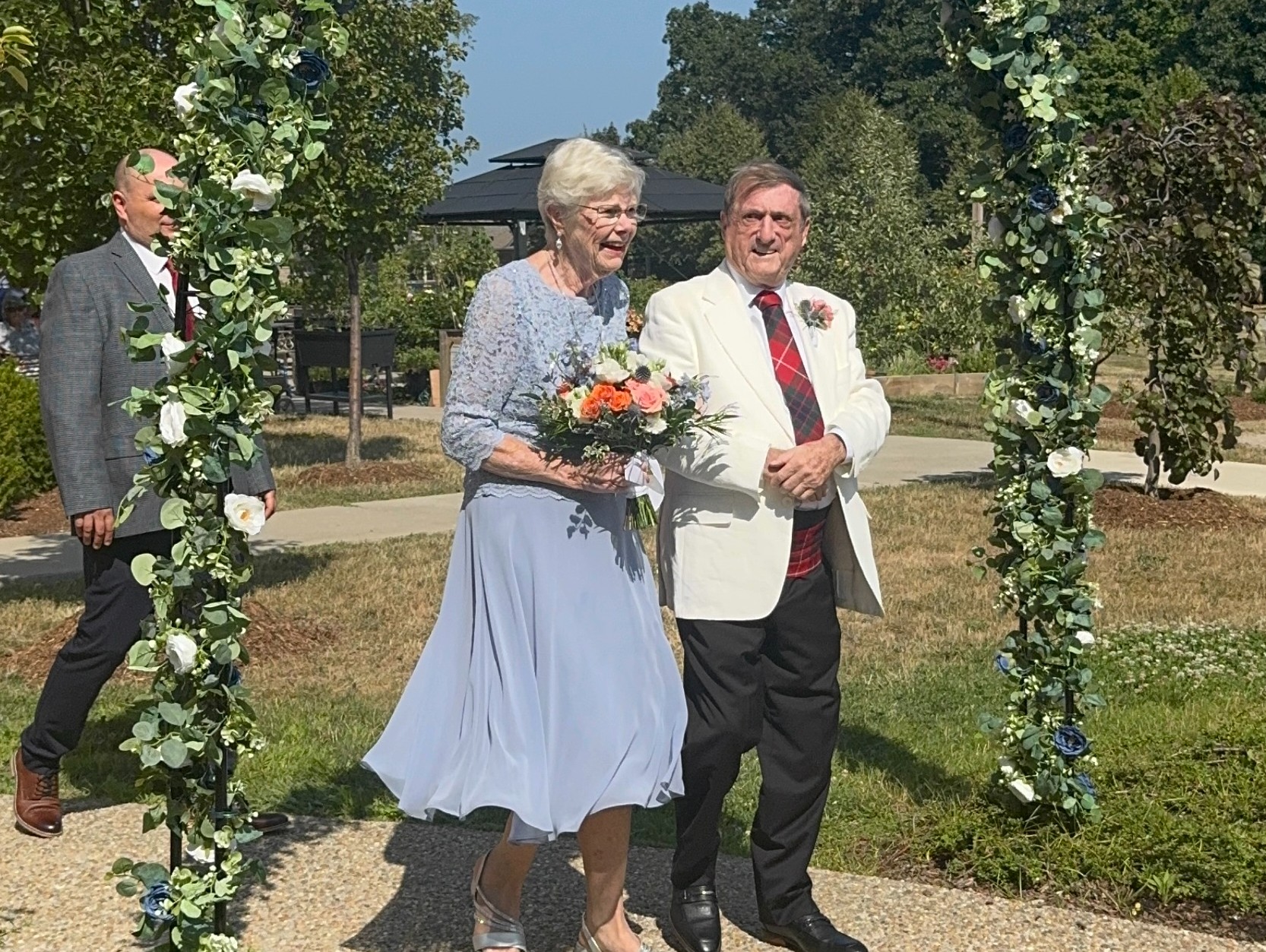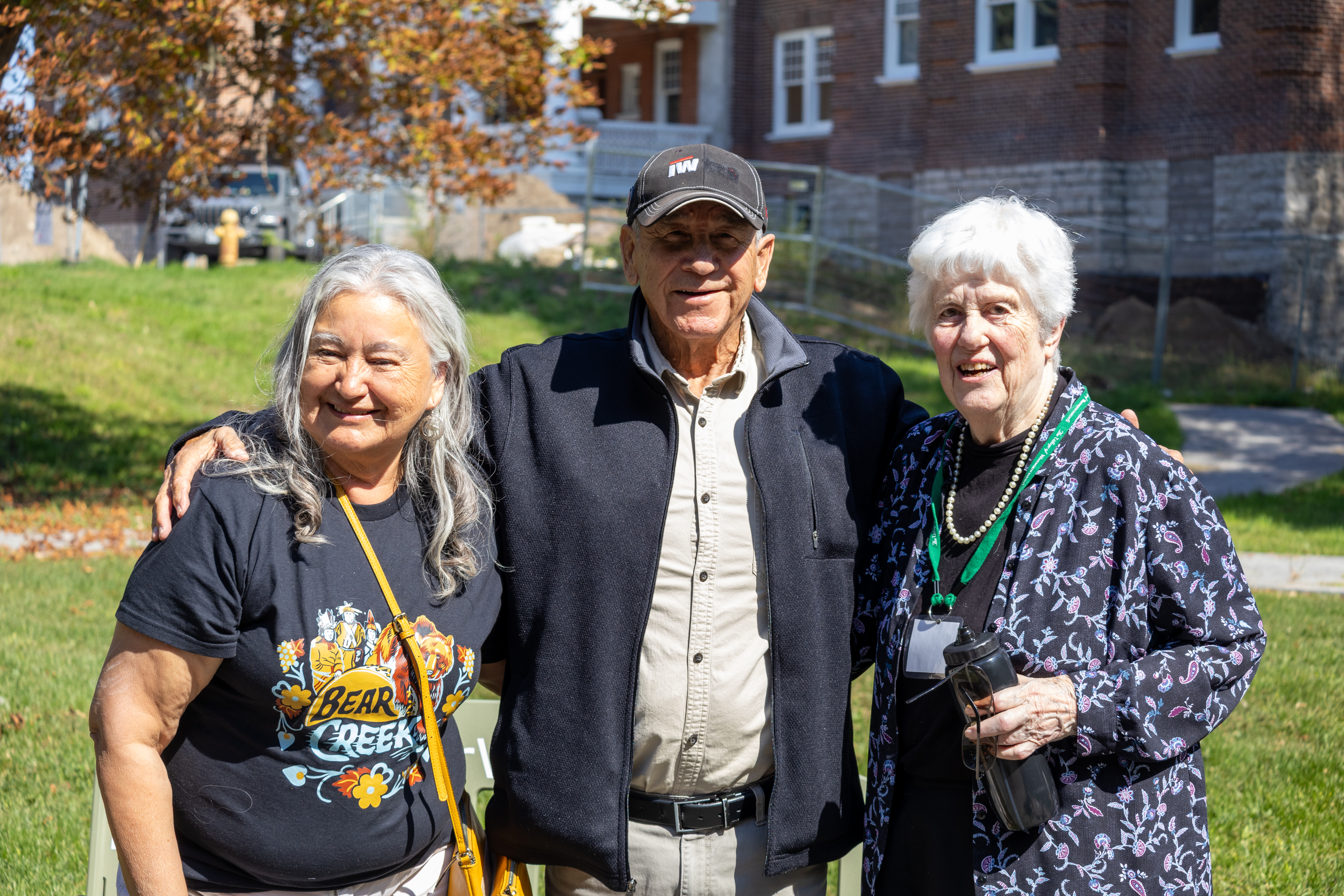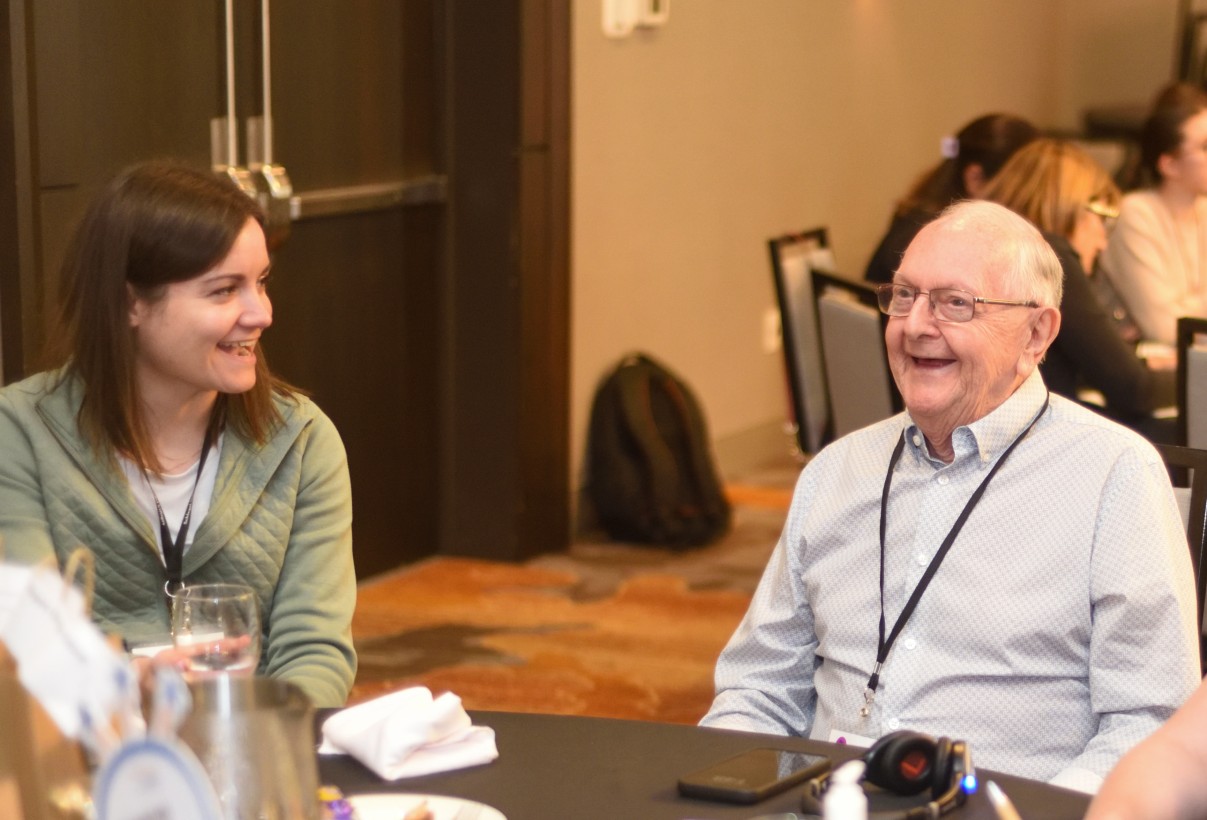Brittany Kraft, a nurse from The Village at University Gates, recently spoke at the Schlegel Villages/RIA Innovation Summit about a different approach to supporting residents who are living with mental health or dementia related challenges. Specifically, she spoke about the lens of personal well-being as a tool to assess what might be done to enhance the lives of residents and address the root causes of difficult personal expressions.
She shared the story of a woman we’ll call Edna, who had lived with schizophrenia for some 38 years before she moved to University Gates in mid-2016. When she arrived in her new home, she expressed her fear and anxiety in challenging ways; she felt no security, it seemed, and she thought her roommate was stealing her belongings, even going so far as to hide knives from the kitchen in her room in order to retaliate if there was a perceived threat.
Throughout Edna’s life, she’d been involved in incidents of violence against other people and she was at the point now where she refused medication, aside from the antipsychotic Haldol to control her expressions of physical response to the world around her. She refused baths and other forms of personal care and finally, the team decided to seek the assistance of Freeport Hospital, a mental health rehabilitation centre affiliated with the Grand River Hospital in Kitchener. For 60 days the team there assessed the myriad of medications Edna was prescribed and did their best to stabilize things.
When she returned from Freeport, Brittany and the team decided to concentrate on the well-being approach to support Edna, which suggests there are seven domains of well-being within all of us. If those domains are lacking, then naturally feelings of frustration, sadness, anxiety or depression will likely prevail over more positive outlooks.
“A lot of the distress we see is actually due to the fact that people are without these very important aspects of well-being that all people need,” says Dr. Al Power, Schlegel Chair in Aging and Dementia Innovation with the Schlegel-UW Research Institute for Aging, and key proponent of the well-being approach.
As the University Gates team considered Edna in a team huddle, they focused on the domain of ‘meaning’, which they quickly saw dovetailed with ‘connectedness’ and ‘autonomy.’
They drew a picture of a cup to represent the domain of meaning, and asked how full her cup was.
“It was basically empty,” Brittney said. The first day Edna was back at University Gates, she wanted to leave again. They found her out front, plotting her path to escape as the Haldol she’d taken that day worked inside her system.
“She said the reason she wanted to leave that day was because she wanted to go back to her apartment to cook cabbage for her family, her parents specifically,” Brittany recalled. “Even though she’d gone to Freeport and had her medications looked at, this delusion of wanting to leave to cook food for her parents was still there.”
The team had their idea. If cooking for people provided a sense of meaning for Edna, then she should cook. There’s a photo of Edna today that Brittany shared; she’s standing over a sink preparing cabbage, smiling away. She now cooks daily for her fellow residents and is happy doing so. She hasn’t taken Haldol since she first returned from Freeport.
She smiles a lot.
“We baked cupcakes yesterday and she went around handing them out to residents at lunch time,” Brittany told the Innovation Summit attendees. She receives and almost appreciates care, as opposed to refusing it, and with the changes, her other domains are filling up naturally. She finds ‘joy’ in cooking for others and her perceived lack of ‘security’ no longer seems to stress her.
“This is a perfect example of how using one of the domains just added so much value to Edna’s life,” Brittany said. “Even though she does have a mental health diagnosis and it can be a very challenging thing, it wasn’t medication that fixed Edna, it was adding that meaning and that value back to her life.”
Click here to read more about the Eden Alternative Domains of Well-Being℠ and this approach to support.
Note: There are a lot of people that took it upon themselves to move beyond a typical job description to help Edna discover a bit more meaning in her life. “This whole thing wouldn’t have been a success without the Pollock team,” Brittany says. “They are the real heroes that I insist on being mentioned. The full-time day nurse, Celia Gilroy, took it upon herself to make a grocery list with Edna. With more collaboration we were able to make weekly grocery lists and send it to the kitchen where they gave us the food she had ordered. Our recreation team member, Nicolette Harrow, took time to bake with Edna as well as setting her up in the kitchen to cut cabbage, not to mention all the PSW support taking time to peek in on Edna while she was cooking to monitor for safety. Sandy Taylor was a huge part of the process as well, helping organize everything and helping assess any potential risk.”
- Previous
- View All News
- Next
